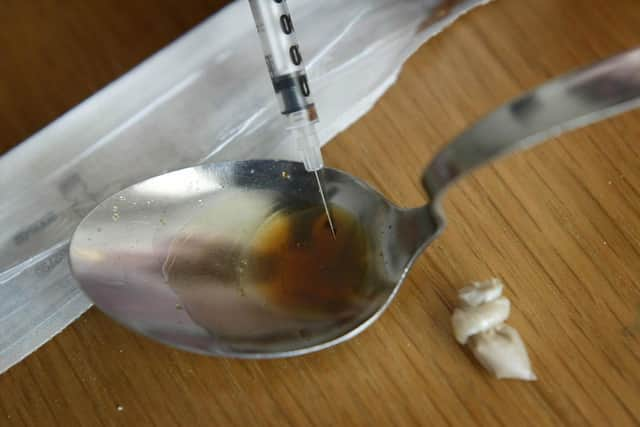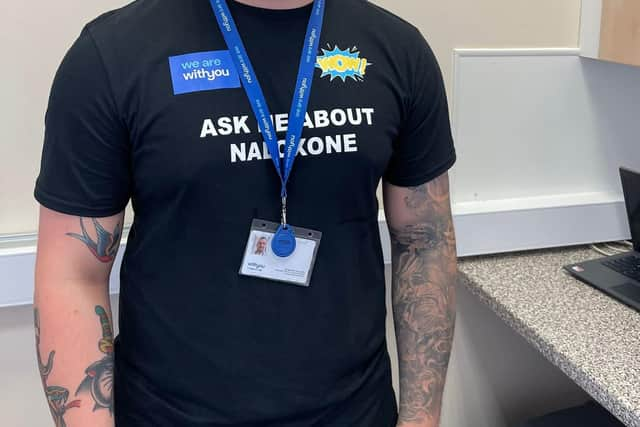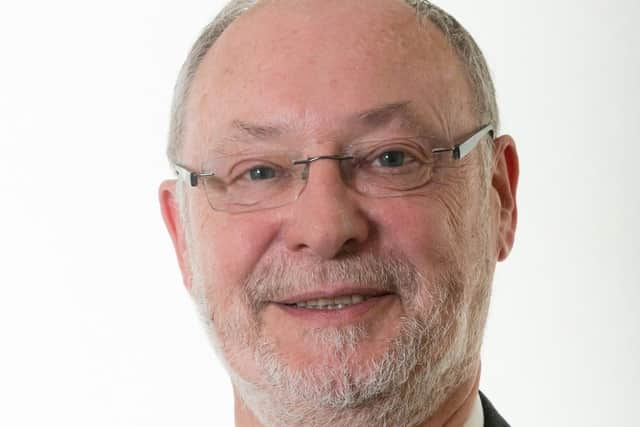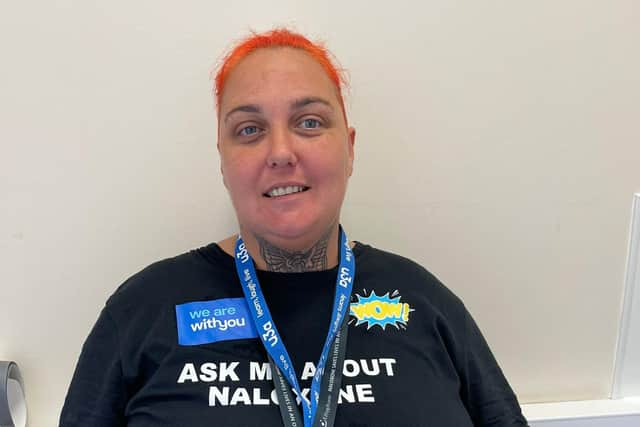Bid to save lives as drug-related deaths in Wigan reach record high
and live on Freeview channel 276
New figures show there were 42 deaths related to drug poisoning in Wigan in 2021 – up 82.6 per cent from 23 in 2020 and the highest number since records began in 1993.
The Office for National Statistics (ONS) said 25 of these deaths were attributed to drug misuse, up 47 per cent from 17 in 2020 and again the highest recorded.


Advertisement
Hide AdAdvertisement
Hide AdIt reflects the national picture, as deaths in England and Wales also reached a record high, with 4,859 deaths related to drug poisoning registered in 2021.
The ONS said the overall rising trend over the past decade has been driven primarily by deaths involving opiates, but also those involving other substances such as cocaine.
In the last year there have been “significant” rises from 2020 in deaths involving cocaine, methadone and new psychoactive substances.
The ONS said possible explanations for the rise could be that there is an ageing cohort of drug users experiencing the effects of long-term use and becoming more susceptible to a fatal overdose.


Advertisement
Hide AdAdvertisement
Hide AdNew trends involving taking specific drugs, such as benzodiazepines, alongside heroin and morphine may increase the overdose risk.
It is hoped a new programme launching in Wigan will help to tackle this by drastically increasing the availability of the life-saving opioid overdose reversal drug naloxone.
Drug, alcohol and mental health charity With You has teamed up with Wigan Council and the Wigan Offender Management Unit to launch the peer-to-peer naloxone programme.
It is a model for naloxone distribution which does not rely on people accessing drug treatment services.


Advertisement
Hide AdAdvertisement
Hide AdInstead, a team of “peers” – people with lived experience of drug and alcohol issues – proactively take naloxone out on the streets, approaching people who use opiates. They will give out the drug and train people how to use it there and then.
Tina Hill, a peer involved in the programme, said: “People on the street see us with the naloxone and they feel comfortable to come and tell us their story. We see them looking better and more fresh and we know it's because we have trained them to use naloxone while giving them a safe space to talk.
“You don’t just wake up one morning and think ‘I am going to score heroin today’. We are all born as blank canvases and something happens to us, but people can turn their lives around. People on the streets see us and realise that we have done it, so they can do it as well.”
Jake Kirkpatrick, a co-ordinator for the programme, said: “Running the naloxone programme keeps me on my toes. Someone who has issues with drugs is always 24 hours away from using and recovery is a struggle. I take one day at a time. Getting the knowledge on how to use naloxone to help save lives is reassuring. It gets me ready to go again the next day. The programme has helped me in my own recovery.”


Advertisement
Hide AdAdvertisement
Hide AdNaloxone is an opioid antagonist, which works by rapidly binding to opioid receptors on the brain, preventing opiates from activating them.
Anyone who overdoses on an opiate should still be seen by emergency services, but naloxone buys people vital time until that support arrives.
It comes after a 2017/18 report by charity Release found just 16 per cent of people who use opiates had been given take-home naloxone.
Vicki Nash, service manager of With You in Wigan and Leigh, said: “Every drug-related death is a tragedy and every death is avoidable. Too many families in Wigan have lost loved ones. It’s time to take action.
Advertisement
Hide AdAdvertisement
Hide Ad“The opportunity to carry and use naloxone shouldn’t be restricted to people who are engaging in drug treatment. This is about being proactively engaging people where they feel comfortable and saving lives.
“Naloxone is easy to use, relatively inexpensive and can be the difference between life and death. We know that people outside of structured drug treatment are most likely to die of a drug-related cause so the peer-to-peer naloxone programme is a no-brainer.”
Coun Keith Cunliffe, portfolio holder for adult social care at Wigan Council, said: “The importance of this work cannot be understated. We will be removing barriers and engaging with people proactively to ensure action is taken before it is too late.
"It is truly tragic that we continue to see lives lost due to drug use, but hopefully this programme will help bring so many avoidable deaths to an end.”
Advertisement
Hide AdAdvertisement
Hide AdSgt Steve Hanley, from Wigan Offender Management Unit, said: “The commitment of those involved is fantastic to see. There is a real appetite amongst those who are championing this to distribute as many kits as possible, as any one given kit could save somebody's life. I go and listen to the stories that are told and am on hand to answer any questions around how they may be received out in the community. I am glad to offer what support I can in what is a really worthwhile project.”
The ONS figures cover drug abuse and dependence, fatal accidents, suicides and complications involving controlled and non-controlled drugs, prescription and over-the-counter medications.
Around half of the deaths registered in 2021 will have occurred in previous years due to death registration delays.
The figures show the rates of drug-related deaths nationally have risen 81.1 per cent since 2012, when there were 46.6 deaths per million people.
